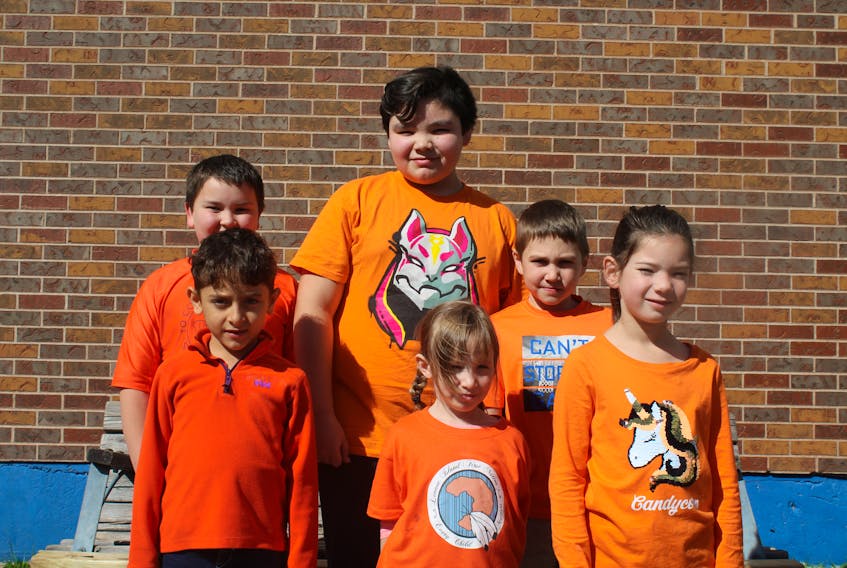CHARLOTTETOWN, P.E.I. — Mason Larkin was excited to wear his bright orange shirt to school on Monday.
On any other day, the shirt would make him, an already tall-for-his-age Grade 6 student at Prince Street School, stand out.
But on Monday, he was like every other student, teacher and staff member at his Charlottetown school – and most schools across Canada – wearing bright orange shirts to honour survivors of Canadian residential schools.
“Orange Shirt Day means every child matters, like us,” said Mason.
“It is about a girl who wasn’t allowed to wear her new orange shirt when she went to school because she was Mi’kmaq and she wasn’t allowed to go home.”
Orange Shirt Day is set aside to mark the residential school experience and honour residential school survivors and their families in the spirit of truth and reconciliation.
The origin of the orange shirt comes from the story of former student Phyllis (Jack) Webstad. On her first day at St. Joseph Mission Indian Residential School in B.C. in 1973, she wore a shiny new orange shirt, bought by her grandmother. However, it was taken from her, along with the rest of her clothes by staff at the school.
Webstad was only six years old.
“She was trying to be brave about it and trying to be proud to be Mi’kmaq and who she was and her new shirt,” said Mason.
“The people, they took children from all around and made them stay at the school and they weren’t allowed to see their families. They didn’t want them to be different.”
For Mason, it was important to wear his orange shirt to remember what Webstad and many other Indigenous people went through during the time of residential schools.
Orange Shirt Day lands on Sept. 30 because, traditionally, that is when Indigenous children would be heading to residential schools.
One of the last residential schools closed in the Maritimes was Shubenacadie Indian Residential School in Nova Scotia in 1967. Researchers at Cape Breton University estimate nearly 1,000 Indigenous children were sent there over the school's 37-year history.
The day is a chance to acknowledge and remember Webstad and all the Indigenous children who went to residential schools, said Mason.
“Orange Shirt Day means that people should respect us for who we are and the choices we make."









